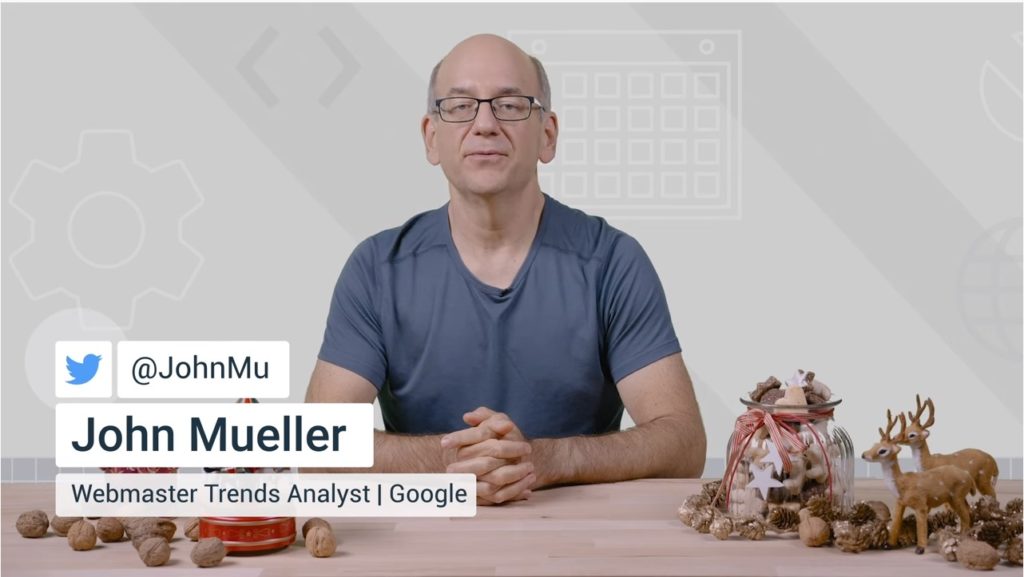SEO questions: Google answers to the most frequent ones
The epiphany took all holidays away, as an old italian proverb goes, but we are still in time to comment a special episode of Ask Google Webmasters, the YouTube series in which John Mueller provides answers to the SEO community. Celebrating the end of the year, the Senior Webmaster Trend Analyst of the US company created an “Holiday Special” video so to answer the most common SEO questions afflicting who works online.
Mueller so suggests a quick list of questions and answers, with very concise and clear definitions, clarifying some general or technical matters about SEO and Google Research system. Here are these “pills”, then, that can surely come in handy in the everyday activity too.
What is the difference between redirect 301 and 302?
We are talking about two ways to perform a redirect toward another resource and both lead users ahead, with a subtle yet important difference: a redirect 301 is permanent, therefore “the destination is what we keep”. 302 is instead a temporary redirect, so Google will later come back to assess the URL status. Both work perfectly fine and the choice depends on different needs and single cases.
What is the difference between a 404 and a 410?
Still on the HTTP status codes matter, both the 404 and 410 signal that the page is “gone”. On a theoretical level, 410 could be a bit faster, but into practice they are both processed the same on a regular website.
What is the right length for meta descriptions or title tags?
A predefined length for meta descriptions and title tags does not really exist, but it is important that these elements would be original, persuasive and useful, so to provide the users with every piece of info they are looking for. This way, Google can highlight the site’s pages on SERP in the best way possible.
Can we use special symbols in the title?
Of course! Google tries not to show ambiguous symbols and the number of people searching for them could be pretty low, but a site can surely use symbols in the title if it likes.
Does the use of keywords within URLs have any value?
Keywords entered within URLs don’t have any “significant” weight to pages, but “most content management systems makes it easy to use them: so, just use them if you already have them but don’t worry if you don’t”. Different is the case for image files, where Google uses keywords for indexing them inside image research, given the fact that “cute-robot.gif is definitely better than image-1138.gif”.
Does the use of the .php or .html extension for pages have a different importance?
No, answers John Mueller, because both extensions are perfectly fine; the only recommendation is not to change from a type to the other, unless there aren’t already other big work in progress all over the site.
What is the secret for a better ranking?
In addition to these technical SEO questions or doubts on the management of some of the content’s aspects, Mueller offers a personal contribution (with his usual irony) even on heavier topics, like when facing the question on the secret to achieve an ideal ranking. According to the Googler there’s no secret: a good start toward the goal is to have a site with solid technical basis providing outstanding contents.
Here John offers a comparative term “baking the best cookies: you want something made from good ingredients by trustworthy bakers, ending up with something that’s just not the same you get elsewhere “; out of the metaphor, the advice is to “stand out, use a good technique and great content, make something that it’s the best by far, something you’ll be proud of, for the long run”.
Google’s algorithms do not count a page’s words for ranking, just like “you wouldn’t judge a cookie just by its weight”. Therefore, “if you want your pages to be recommended as something awesome, then make something awesome!“.




